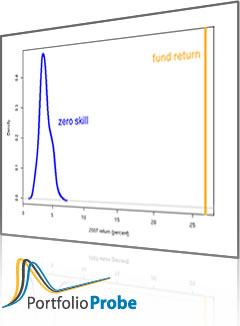Some concrete steps for discerning skill from luck.
The Harvard Business Review published a guest blog post by Michael Mauboussin called Untangling Skill and Luck. That post is really a brief introduction to a longer piece which is also called Untangling Skill and Luck.
The punchline is that there are ways of estimating the proportion of skill versus luck in endeavors, and of estimating the skill of individuals.
The longer paper discusses luck versus skill in three realms:
- sports
- business strategy
- investment
I’m generally not a fan of sports, or sports analogies. However in this case the sports play the very useful role of providing concrete examples. (Perhaps some will think that sports is the point, and the other two applications are just noise.) The sports examples are — perhaps unfortunately — heavily US-centric. (For those outside the US and Canada: when he says “football” he means American football; when he means football, he says “soccer”.)
Persistence
A key indicator of skill is persistence. Outperformance — whether in scoring goals or in investment returns — has elements of both skill and luck. The more consistent the outperformance, the more skill is indicated.
Reversion to the mean
On the contrary, if outperformance tends to be followed by mediocre performance (and underperformance tends to be followed by better performance), then that is an indication of luck. The strength and speed of reversion can be used as an indication of the amount of luck involved.
Null distribution of luck
The evaluation of skill is very much enhanced when you have the distribution of what would happen purely by chance.
Investment performance measurement is sometimes done versus a benchmark, and sometimes with peer groups. A benchmark gives you something that happens by chance, but not a distribution. Peer groups give you a distribution, but not of pure luck.
Lessons for fund management
The comments on luck versus skill in business strategy can help fund managers select companies to include in or exclude from their portfolios.
Random portfolios can be used to provide distributions of pure luck to test investment performance. There are ways of using them to very effectively separate skill from luck.
Epilogue
And while the sun and moon endure
Luck’s a chance, but trouble’s sure
from “Terence, this is stupid stuff” — A. E. Housman
